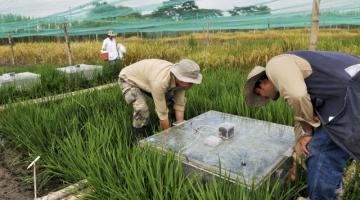RELEASE: Companies Can Now Credibly Report Emissions From Low-Carbon Electricity Purchases
Today the World Resources Institute unveiled new guidance for companies to measure greenhouse gas emissions from purchased electricity. The first major update to the GHG Protocol Corporate Accounting and Reporting Standard responds to the rapid growth of renewable energy and other major shifts in the electricity market.
Scope 3 Evaluator Now Available
The Greenhouse Gas Protocol and Quantis have joined forces to develop and launch the Scope 3 Evaluator - a free, web-based tool that allows users to make an initial, rough approximation of their full Scope 3 footprint, regardless of the size or type of organization. Read the full press release here.
Announcing New Online Courses on Greenhouse Gas Protocol Accounting Standards
The Greenhouse Gas (GHG) Protocol, developed by World Resources Institute (WRI) and World Business Council on Sustainable Development (WBCSD), sets the global standard for how to measure, manage, and report greenhouse gas emissions; these standards are used by thousands of companies to become more efficient, resilient, and prosperous organizations. Hundreds of industry professionals have learned greenhouse gas accounting from WRI experts through in-person and webinar trainings. Now, the same expert instruction is available to you on a low-cost and convenient e-learning platform. Online courses have been developed for the following GHG Protocol standards:
RELEASE: First Ever Agriculture Guidance Empowers Companies to Measure and Manage Emissions
The World Resources Institute unveiled the first ever Agricultural Guidance to help companies measure, manage, and report greenhouse gas emissions from the agriculture sector, including farming, livestock, and land use change. The agriculture sector is responsible for 17 percent of global GHG emissions, including land use change.
5 Questions With Vivek Adhia: A New Program For Measuring India’s Greenhouse Gas Emissions
As India continues to experience the impacts of climate change in the form of changing rainfall patterns, heat waves, and coastal flooding, businesses are increasingly recognizing the need to mitigate and adapt. The problem is that many lack guidance on where to begin.
Pagination
- Previous page
- Page 9
- Next page



